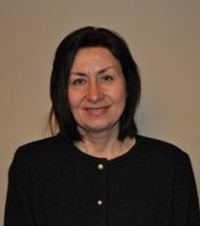The University of Oklahoma Biocorrosion
Irene Davidova, Assistant Research Professor of Microbiology

Department of Botany and Microbiology
University of Oklahoma; Norman, OK 73019
Email: davidova@ou.edu
RESEARCH INTERESTS:
- Anaerobic Microbiology
- Anaerobic Degradation of Hydrocarbons
- Biocorrosion
- Environmental Microbiology
- Petroleum Microbiology
Dr. Davidova’s research focuses on investigating the microbial assemblages associated with biocorrosion processes. Although molecular methods using sequence data are very powerful tools that can provide profiles of the organisms present at a particular location; this is only one piece of the puzzle. Through the process of cultivation, Dr. Davidova is obtaining a more complete picture of the interplay between organisms and the mechanisms of biocorrosion. An important part of the process may be syntrophy: the phenomenon in which one species lives off of the products of another. This “cross-feeding” may be so specific that new cultivation methods may be necessary to separate the species involved in many cases. Dr. Davidova emphasizes the need to recover and characterize isolates from both active and non-active biocorriosive sites, as it allows for the comparison of microbial communities and the identification of organisms responsible for biocorrosive activity. Furthermore, she recognizes that “phylotypes” don’t necessarily predict “ecotypes”. In other words, closely related organisms isolated from different locations can have very distinct physiologies and metabolic processes specific to a location because of evolution / adaptation. Once isolated in pure culture these organisms can be investigated for specific biocorrosive activities either alone (as a pure culture) or as part of a more complex community as exemplified by biofilms in microcosms. Dr. Davidova’s laboratory is involved in extensive collaborations with the Stevenson, Suflita and Duncan labs. In addition to this work, C. Nicole Johnson (Graduate Student) spent one month over the summer of 2010 as an intern of COP on the North Slope of Alaska helping to obtain fresh samples of target microorganisms and offering her invaluable insights into the oil recovery process.